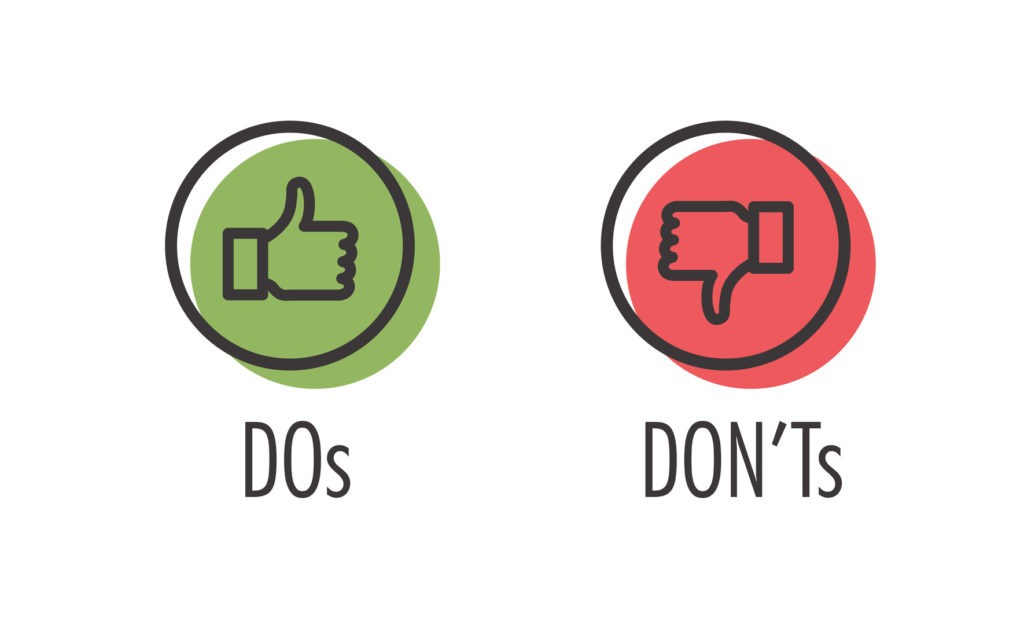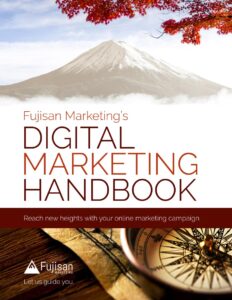When you’re running a campaign with search ads, the first thing that you think of doing is probably bidding on search terms that are directly related to your product, company, or brand. And that’s good! However, it shouldn’t overshadow the importance of competitor keyword bidding. Competitor keyword bidding is simple: running ads for keywords related to a competitor. This is an easy way to get more views and traffic by people who are looking for a competitor.
However, this works both ways — if you employ a tactic like this wrong, it can do more damage than good.
So with that in mind, here are some guidelines on how to get the best results out of competitor keyword bidding:
Do
Beat them on pricing, offers, and/or discounts.
While bidding on competitor keywords can have a few different angles, in the end the point of doing so, like any advertising, is to increase conversions — whether these ads are where someone pulls the trigger or simply helps lead them down that road in the future. Most of your ads will simply result in free awareness since you typically won’t receive a huge amount of clicks, but you still want to make users as intrigued as possible. And pricing is one of if not the most important factor for consumers.
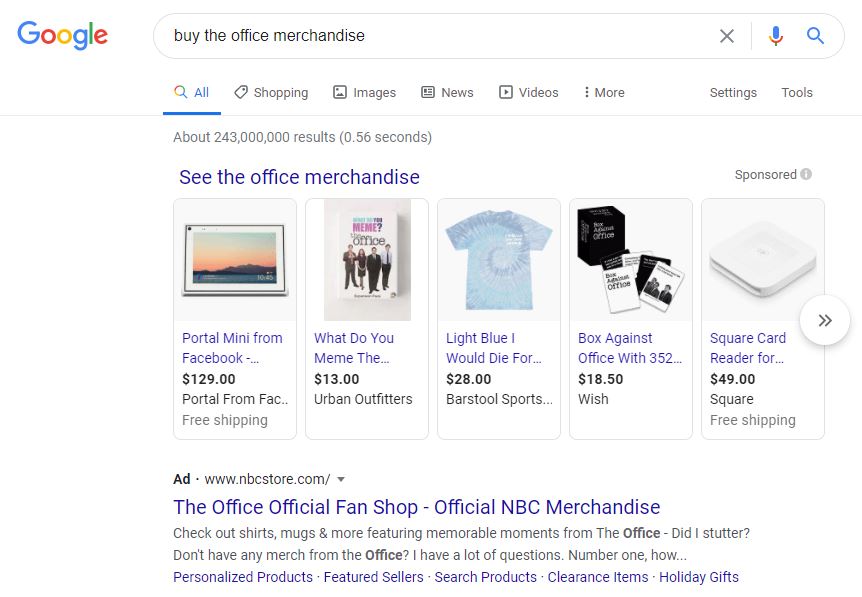
Example of Search Ads on Google
Remember that the vast majority of users will spend minimal time examining an ad. Make sure your price is superior — and that users will see that.
Do Not
Blindly bid on competitors’ keywords without considering the cost.
Initiating a bidding war, intentionally or not, can spiral and backfire. When you begin bidding on a competitor’s keywords, the potential stands for your competitor to do the same right back at you. So while they are doing that, you’ll still get the majority of the clicks since the keywords are specifically aimed towards your brand. This means the price for your clicks will get driven way up while — since they aren’t receiving many clicks — your competitor barely has to pay.
The other bad part about this is that, if you’re careless like this, it can end up harming your company’s real-life reputation. Really this comes down to the same principle with which you hopefully conduct yourself professionally and personally elsewhere: be cool and don’t be crappy.
Do
Use better ad extensions and more engaging copy. Pretty much: make your ad look better than your competitor’s.
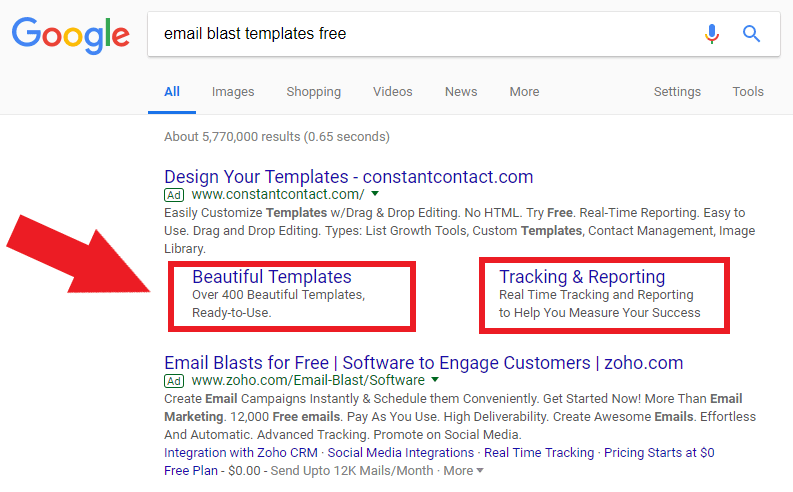
Example of Ad Extentions
If users click on it, great! If not, then, since you’re only getting charged per click, you’re getting free advertising in front of people who possibly didn’t even know of your existence until now. Even if they don’t click, by creating an engaging and informative ad, you are helping your brand stick in users’ memory over your competitors.
Do
Pay attention to high bounce rates.
If you see that your ads are getting a lot of clicks but a high bounce rate, it’s likely an indication that people are clicking on your ad expecting a different landing page. That means you’re paying for clicks for users who aren’t interested in you and who won’t lead to conversions. If you notice this, it’s smart to reexamine your ad copy, bid keywords, and other details and fix them so that the ad more clearly communicates your offer.
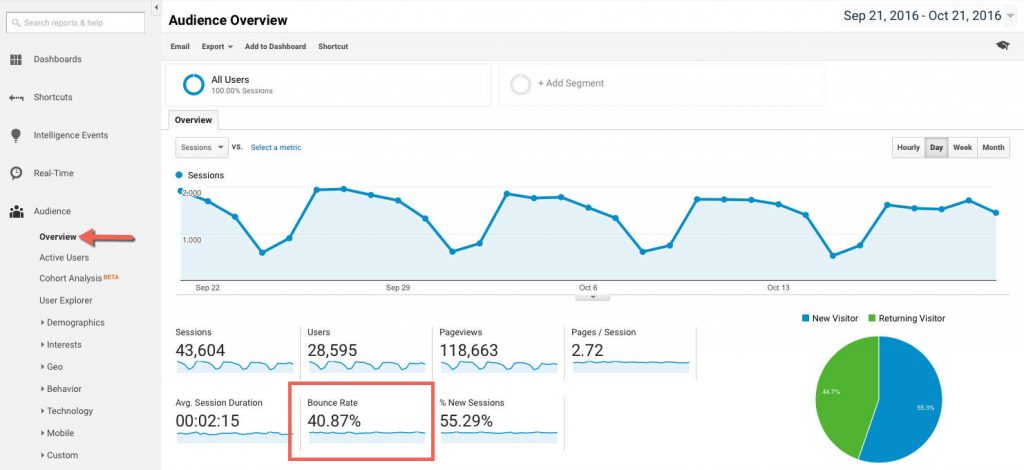
Example of Bounce Rate Percentage
Do Not
Include the competitors’ keywords in your ad! This is a dead giveaway that users see through — it makes your ad stand out but not in a good way. It might seem tempting to just insert their keywords right in your ad groups, but at that point you’re going through all the work just to take a shortcut that sabotages everything you’ve done.
Similarly, you absolutely cannot include your competitor’s branding and trademarks in your advertising unless you’re authorized to do so. The legal issues there could be a big problem that lands you in some very hot water.
Do
Make sure you’re bidding for the cheapest and easiest competitor keywords. In other words, why spend more money when you could just… not? (Or, in the words of Dunder Mifflin’s Kevin Malone: “Why waste time say lot word when few word do trick?”)
This is simple, but it will make sure you get the most from your budget.
In the end, bidding on competitor keywords is a great strategy when you can. The gains you receive from this will vary depending on your company and industry. But just like all digital advertising, the most important thing is to monitor your performance, test often, and adapt so that your marketing bucks go as far as possible.

